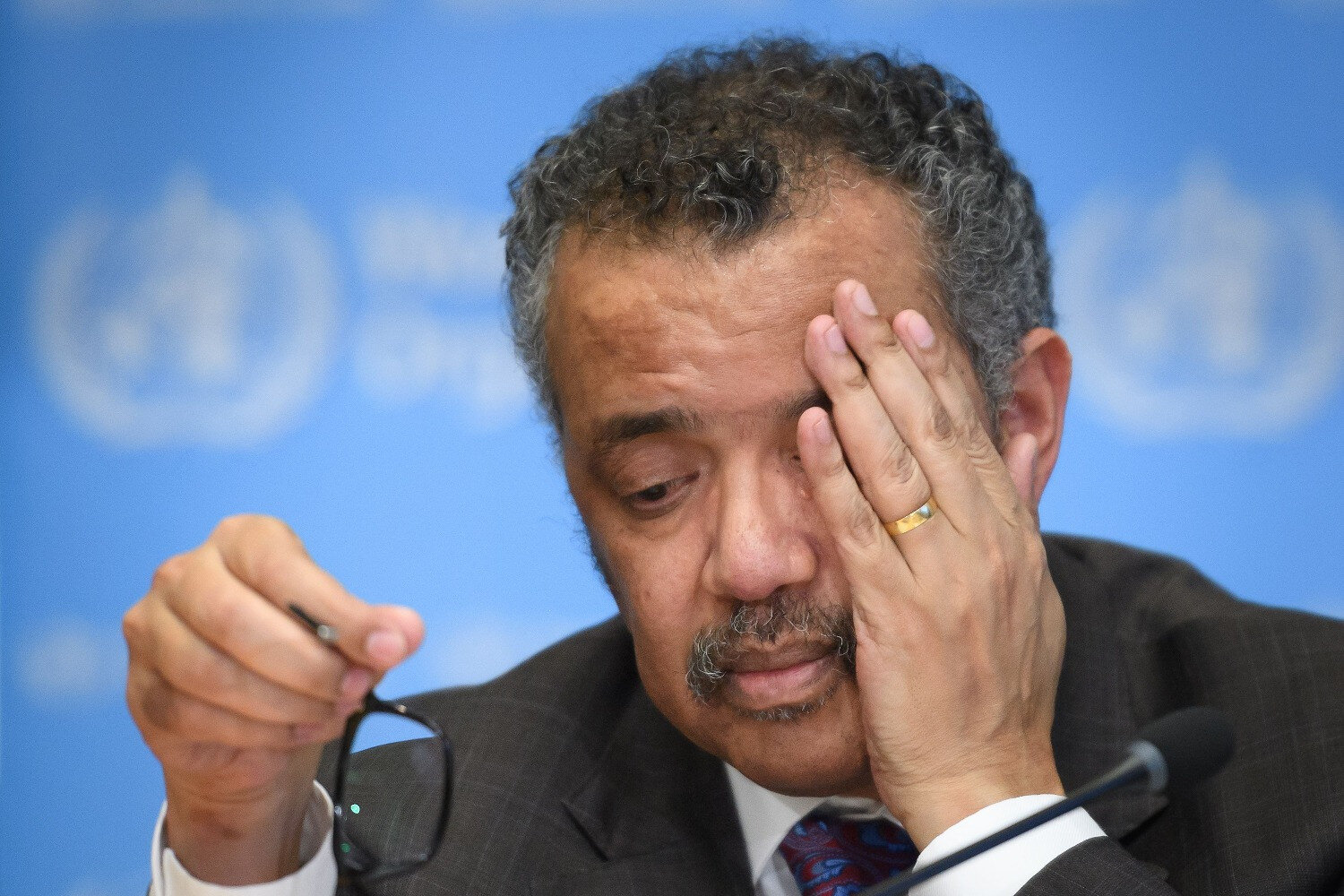World Leaders Call for Pandemic Treaty
World Health Organization Director-General Tedros Adhanom Ghebreyesus at a news conference in the early stages of the COVID-19 pandemic, February 2020. The year since this address has been a turbulent one for the WHO. Source: AFP.
One thing is for certain in light of the pandemic plagued days in which we live: there is no shortage of political and morally divisive policies on the horizon. On March 30th, over 25 heads of state called for an international pandemic treaty to greater combat and alleviate the risk of future life-altering pandemics from arising. The World Health Organization (WHO) Director-General, Tedros Adhanom Ghebreyesus, stated that “the world cannot afford to wait until the pandemic is over to start planning for the next one,” and during a news conference he campaigned on its urgency due to the WHO’s lack of ability for surveillance and oversight within member nations. Origins of the treaty stem from member nations, such as China over the past year, being able to deny WHO access to novel epidemic data or disease materials that could prove crucial in combating a novel pathogen.The treaty has some prominent backers: British Prime Minister Boris Johnson, Premier Mario Draghi of Italy, President Paul Kagame of Rwanda, and the European Council President.
Proponents of the treaty hope to establish a more equitable global environment, greater independent oversight and accountability of member nations, and foster a newfound sense of global cooperation and unity. However, in reality, China, Russia, and the United States all neglected to sign on to the open statement calling for this increased international commitment, and without these key players it would prove tough to garnish full international support or the proper funding for such an extensive program. With the United States over the past year deciding to revoke their membership status in WHO and then reinstate it while also remaining the top voluntary contributor to the WHO budget, providing $893 million dollars, the U.S’s overall commitment to international agreements remains shaky at best. Likewise, the Paris Climate Accords, NATO, and NAFTA all came under fire during the Trump administration due to their apparent failure to put America first. This sort of rhetoric and train of thought certainly has not gone anywhere just because a new President was elected, and more politicians will likely adopt Trump’s ultra-American persona and seek out international agreements and treaties as easy targets to garner the appropriate media attention for their cause.
Furthermore, the likelihood that a pandemic is just around the corner is slim, yet possible. Thus, nations like China, Russia, and the United States would better favor reliance on WHO rather than a new organization or rule of law that might prove just as ineffective. They simply have no individualized incentives to charter a new treaty that covers much of the same operating functions as WHO. Overall, the details of the new treaty are spotty, and essentially they boil down to the desire for greater intergovernmental oversight in times of potential health crisis. If China, Russia, and the United States continue to deny support for this new treaty, then any hopes at strengthening the existing charter of the WHO will likely prove just as fruitful. Ultimately, with a treaty that fails to distinguish itself too much from the WHO and one that challenges the sovereignties of China, Russia, and the United States, this new treaty would fail to prove effective, for the popular support, military, and financial backing would be virtually non-existent.
Moreover, governments are tinkering with the idea of “vaccine passports'' that distinguish a non-vaccinated individual from a vaccinated one. It would largely allow for the economy to reopen sooner with the guarantee of vaccinated individuals partaking in economic stimulus, but it would create a system that allows fro the legal discrimination against unvaccinated individuals. This would be a political hot potato, and could create a “two-tier” society for the foreseeable future as long as COVID-19 lingers. Ethical concerns stem from variations in accessibility to a mobile app, medical and religious exceptions allowing for some to remain unvaccinated, and the individual discrimination created by such a system. Ultimately, like increased surveillance under a pandemic treaty, this expansive and simple idea would need some serious tinkering before being implemented into either international policy or individualized state policy. Conclusively, before these ethical concerns are addressed and the people of China, Russia, and the United States convinced that a new pandemic is coming soon, both these policy ideas will likely fail both on a local and global scheme due to our neglected participation.

